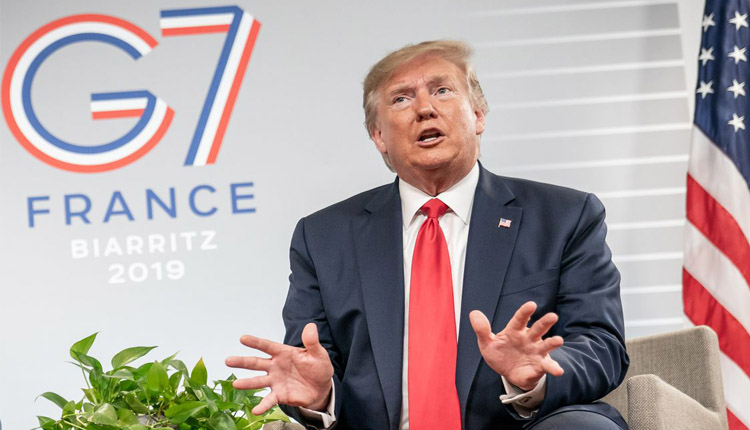President Donald Trump said at the G-7 summit Monday that China is sincere about wanting to make a trade deal with the United States.
Trump, speaking alongside French President Emmanuel Macron at a joint press conference, said he thinks Beijing wants to make a deal “very badly.”
“I’m not sure they have a choice” but to deal with the U.S., whether they want to or not, he added.
“I don’t say that as a threat.”
Earlier Monday, Trump said U.S. trade officials received overnight calls from the Chinese saying Beijing was ready to return to the negotiating table.
“China called last night our top trade people and said. ‘Let’s get back to the table,’ so we will be getting back to the table and I think they want to do something. They have been hurt very badly but they understand this is the right thing to do and I have great respect for it. This is a very positive development for the world,” Trump said.
“I think we are going to have a deal,” he added.
In Beijing, Foreign Ministry spokesman Geng Shuang said he was not aware that a phone call between the two sides had taken place. And Hu Xijin, editor-in-chief of Chinese state-run newspaper the Global Times, denied that negotiators had held the phone calls Trump described.
“China didn’t change its position. China won’t cave to U.S. pressure,” said Hu, who is widely seen as a mouthpiece for Beijing’s messaging.
Asked at the G-7 about reports that China denied the calls took place, Trump snapped: “The Chinese are not saying that!”
Trump reiterated that the U.S. had “numerous calls” at the highest levels with the Chinese but would not elaborate on the details of the calls.
The trade war between the two economic superpowers had escalated sharply on Friday as both sides slapped more tariffs on each other’s exports.
Before leaving for the G-7, Trump said he would raise existing duties on $250 billion in Chinese products to 30% from 25% on Oct. 1. Additionally, he said, tariffs on another $300 billion of Chinese goods, which start to take effect on Sept. 1, will now be 15% instead of 10%.
The moves were the latest punches in a tit-for-tat trade war that has spooked investors and raised fears that the global economy will dip into a recession.
source: Reuters


